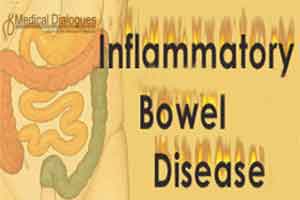- Home
- Editorial
- News
- Practice Guidelines
- Anesthesiology Guidelines
- Cancer Guidelines
- Cardiac Sciences Guidelines
- Critical Care Guidelines
- Dentistry Guidelines
- Dermatology Guidelines
- Diabetes and Endo Guidelines
- Diagnostics Guidelines
- ENT Guidelines
- Featured Practice Guidelines
- Gastroenterology Guidelines
- Geriatrics Guidelines
- Medicine Guidelines
- Nephrology Guidelines
- Neurosciences Guidelines
- Obs and Gynae Guidelines
- Ophthalmology Guidelines
- Orthopaedics Guidelines
- Paediatrics Guidelines
- Psychiatry Guidelines
- Pulmonology Guidelines
- Radiology Guidelines
- Surgery Guidelines
- Urology Guidelines
Elderly patients of IBD on Thiopurines more likely to develop adverse events, finds study

Thiopurines are the most widely used immunosuppressants in Inflammatory bowel disease although drug‐related adverse events (AE) occur in 20%‐30% of cases. These drugs are effective in maintaining remission in both ulcerative colitis and Crohn's disease.Dr Margalida Calafat of the Hospital Son Llàtzer in Mallorca, Spain, and colleagues conducted a study to evaluate the safety of thiopurines in elderly IBD patients. The researchers found that elderly patients with inflammatory bowel disease (IBD) are at higher risk for adverse events (AEs) related to the use of thiopurines. The findings of their study have appeared in the October issue of Alimentary Pharmacology and Therapeutics.
Please also read-IBD patients are at higher risk of heart attack and mortality
The researchers identified adult patients in the ENEIDA registry, a registry of patients with IBD in Spain, who had received thiopurines (azathioprine or mercaptopurine) at any point during their treatment. Patients were grouped in terms of age at the beginning of thiopurine treatment, specifically in those who started thiopurines over 60 years or between 18 and 50 years of age. Thiopurine‐related AEs registered in the ENEIDA database were compared.
The researchers found that out of 48 752 patients, 1888 started thiopurines when over 60 years of age and 15 477 under 50 years of age. Median treatment duration was significantly shorter for those who started thiopurines >60 years (13 [IQR 2‐55] vs 32 [IQR 5‐82] months; P < .001). Patients starting >60 years had higher rates of all types of myelotoxicity, digestive intolerance and hepatotoxicity. Patients in the over-60 group had higher rates of infections (3.6 versus 2.0 per cent) and neoplasms (1.5 versus 0.2 per cent) compared with the control group. The median duration of treatment was significantly shorter for the older group (13 versus 32 months); thiopurines were discontinued due to adverse events other than infections and neoplasms more frequently in the older group (67.2 versus 63.1 per cent). Female gender was also an independent risk factor for most AEs.
Please also read-People with childhood-onset IBD more likely to attempt suicide: JAMA
The researchers concluded that in elderly IBD patients, thiopurines are associated with an increased risk of non‐infectious, non‐neoplastic, Adverse events."Our findings very likely reflect reduced drug clearance in elderly patients and in females, and suggest that dosing guidelines should recommend consideration of lower starting doses or close monitoring of drug metabolites in these populations," the authors write.
For further reference log on to :
https://doi.org/10.1111/apt.15458

Disclaimer: This site is primarily intended for healthcare professionals. Any content/information on this website does not replace the advice of medical and/or health professionals and should not be construed as medical/diagnostic advice/endorsement or prescription. Use of this site is subject to our terms of use, privacy policy, advertisement policy. © 2020 Minerva Medical Treatment Pvt Ltd